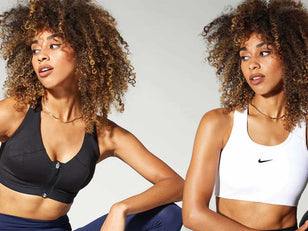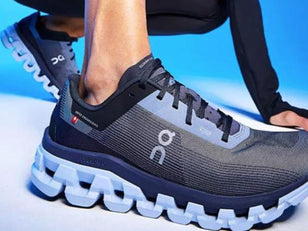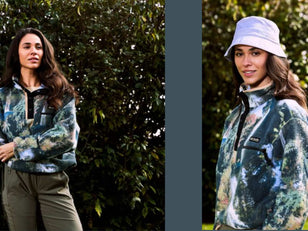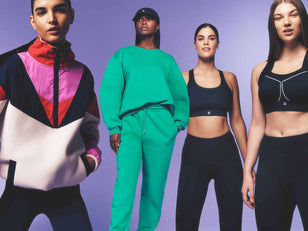
Buying Guides
Sale
Shop the SaleNew Brand Drops
All New inFeatured
All BrandsFeatured
All ShoesTrending
All Articles
Buying Guides
Nike Zenvy & Universa Leggings Review

Buying Guides
Sports Bras: Compression vs Encapsulation

Shoe Reviews
HOKA Anacapa 2 Mid Gore-Tex Review

Shoe Reviews
On Running Cloudflow 4 Review

Buying Guides
Stay Cosy Outdoors: The 5 Best Fleece Options for Women

Buying Guides
Sweaty Betty Size Guide
Earn points towards free products, discounts & more
Not a member?
Find out moreYour cart is empty


SUSTAINABILITY RATING: 2/5
Free People Movement is the activewear side of Free People, which is owned by Urban Outfitters (URBN). While the brand boasts some eco-conscious materials in its ranges, it has a long way to go toward being environmentally friendly.

Sustainable Materials
Free People uses some eco-conscious materials in its product lines. For example, in 2019, the brand launched the Econyl Collection as part of Care FP, a sustainable and eco-conscious arm of the brand. The company states that for every‘10,000 tons of Econyl raw material, 70,000 barrels of crude oil are saved, and 57,100 tons of CO2 eq. emissions are avoided.' However, Free People does not widely use eco-friendly materials in its activewear range, which relies heavily on virgin Nylon and Spandex which are energy and resource-intensive. Additionally, there is no evidence that Free People is trying to eliminate the use of hazardous chemicals in its production.

Labour Welfare
The brand has a relatively low 21% score on the latest Fashion Transparency Index, which puts it broadly in the middle of the pack of fashion brands. The Free People Supply chain is not certified by labour standards. That could be detrimental to the well-being and safety of the brand’s wider employees, with no assurance of labour rights, fair wages, or worker health and safety. While the brand may publish some information regarding its audits and policies, there is a need for more transparency. Free People doesn’t publish a comprehensive list of its suppliers. We have not seen a published stance on forced labour, gender equality or freedom of association.

Manufacturing
Free People’s distribution centre is‘one of the country's largest rooftop solar arrays for on-site power generation’and the initiative creates enough power for almost 300 homes, which means that it is almost self-sufficient. The on-site power generator reportedly saves 965 tons of CO2, 108,956 gallons of gas and 24,212 trees per year. Whilst this is a positive commitment to renewable energy, there is no evidence that this ethos extends to its supply chain. Similarly, there is no evidence that the company is lowering its water usage or preventing deforestation in its supply chain.
*Excludes sale. Plus get exclusive access to new drops, sales & more!